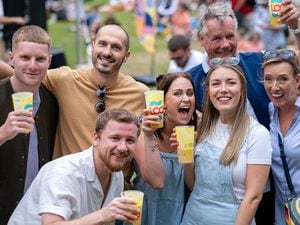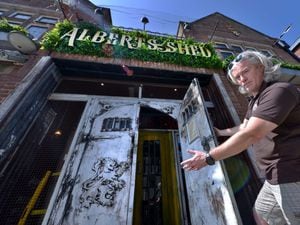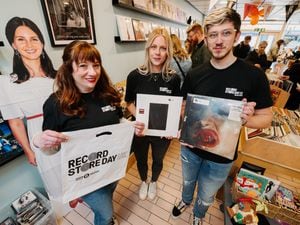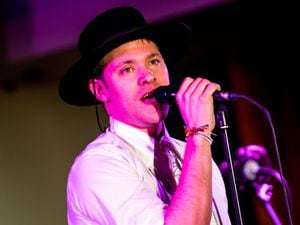'It’s great to play iconic venues like the Town Hall': Colin Curtis talks ahead of Birmingham show
If you think that star DJs mixing records for the entertainment of thousands of club-goers is a new thing, then think again.
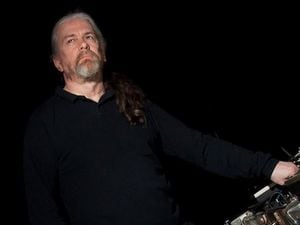
Colin Curtis has been doing it for more than 50 years – although he admits the money wasn’t quite as good in his early days.
The likes of superstar DJs Calvin Harris, David Guetta and Louie Vega earn millions, flying around the world to perform at clubs for upwards of £10,000 a night.
Colin was paid £10 for his first all-nighter at The Golden Torch in Stoke-on-Trent, but this was history in the making. He became a hugely influential DJ and one of the most important on the northern soul scene in the Midlands and North West.
And he’s credited with being one of the first DJs to introduce mixing.
Colin is still going strong at the decks at 66 and is now bringing some of his huge record collection to Birmingham Town Hall on May 25, to headline the fourth Big Birmingham Soul Night.
He’ll be playing classic northern soul on original vinyl in the main hall, while there’s a mix of mod, soul, funk and disco in the second room. The bill includes Pep, Neil Rushton, Richard Priest and Mazzy Snape.
Colin grew up in Stoke-on-Trent, where he still lives, and has been a regular visitor to Birmingham.
He spent hours searching for records at Reddington’s, Oasis and The Diskery, then hours more spinning them at city clubs like the Locarno, Chaplin’s, the Hummingbird and Rum Runner.
Colin says: “I remember going to Birmingham on the train because I was told about a kiosk which sold great records. I found it somehow, though it looked more like a place where you’d buy cigarettes.
“It was Reddington’s. I told him the type of music I wanted and he bent down and produced about 40 singles.
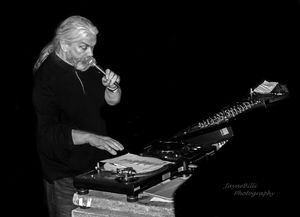
“I spent so much money on imports from America, that had big holes in the middle to play on juke boxes.
“I’d spend hours in The Diskery and loved getting lost in Oasis, that fabulous mix of shops for records, fashion and gadgets.
“The Locarno, run by Terry Sampson and Chris King, was a great club to play. They’d have northern soul in the main room and jazz funk in the far room – it was called Bali Hai and was covered in palm trees. Then they swapped over and we had some great live acts in the main room like Roy Ayers and Afrika Bambaataa. The jazz dancers hung out in Bali Hai.
“I’d go to Tiffany’s in Halesowen on a Thursday night and the Rum Runner on Broad Street on Mondays.
“Duran Duran would often be rehearsing upstairs. I got to know their managers, the Berrow brothers, and one of them gave me an acetate of their first single, Planet Earth, before it was released.
“I remember chatting to the bass player, John Taylor, and lent him a couple of albums of Inner City jazz. I never got them back!
“More recently I’ve DJed in Birmingham at the Night Owl in Digbeth. There’s a huge following for northern soul now in the West Midlands.
“It’s great to play iconic venues like the Town Hall. We were laughed out of places like Blackpool Tower in the 1970s, as they only wanted to book acts like Bruce Forsyth, but now we’re the establishment!
“I’ve transcended all the styles over the years. I started out with R&B and soul in the 1960s, then northern soul in the 70s, then jazz funk and house. I keep moving forwards.”
Colin currently owns around 15,000 records on vinyl and 10,000 CDs, down from his peak of 60,000.
His passion for music began by listening to pirate radio and Motown records. His first DJing was as a 14-year-old in the local village hall.
He loved his first night dancing at The Golden Torch in Tunstall so much that he walked the three miles back the next night, only to find it closed.
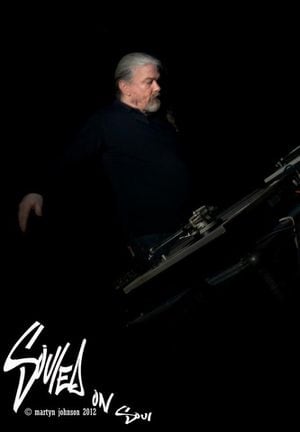
Later, after a stint at the Crystal Ballroom in Newcastle-under-Lyme, he became a resident DJ at the Torch. When it closed in 1973 he moved to Blackpool Mecca’s Highland Room and teamed up with Ian Levine.
They are credited with being among the first DJs to introduce mixing to British nightclubs, while Colin was also one of the first to play the new wave of house music and hip hop coming from Chicago in the 1980s.
Colin has always been an innovator. He set up a computer games business and now produces a weekly podcast with the latest releases.
And as for those superstar DJs commanding millions? Colin’s happy enough living in Stoke with his wife and four children. A dislike of flying means international work is out.
“Last year I turned down 31 gigs from Russia and Sweden to Poland and Japan,” he admits.
“I could take on any of these superstar DJs in the knowledge stakes, but you have to accept your lot in life and I have no complaints.”
It wasn’t always the case. In 1986 Colin spent months in North Staffordshire Hospital, diagnosed with burnout and clinical depression.
“I was burning the candle at both ends. I would leave the house on a Friday night and not come back until Sunday, and hardly have slept or eaten anything. I survived on adrenaline.
“I used to get the train to Birmingham or Manchester on a Saturday morning and look for records. Then I’d DJ with my mobile disco, before turning up at a club like The Torch at 11pm for an all-nighter. I’d do a couple of DJ sets and still be there at 8am. Then I’d go to a Sunday all-dayer. No wonder I got ill.
“I’ve battled with mental illness half my life, but music is the greatest drug. It’s seen me through everything.”
The Big Birmingham Soul Night is at Birmingham Town Hall on Saturday, May 25. For tickets ring 0121 780 3333 or go to thsh.co.uk.
By Roz Laws

